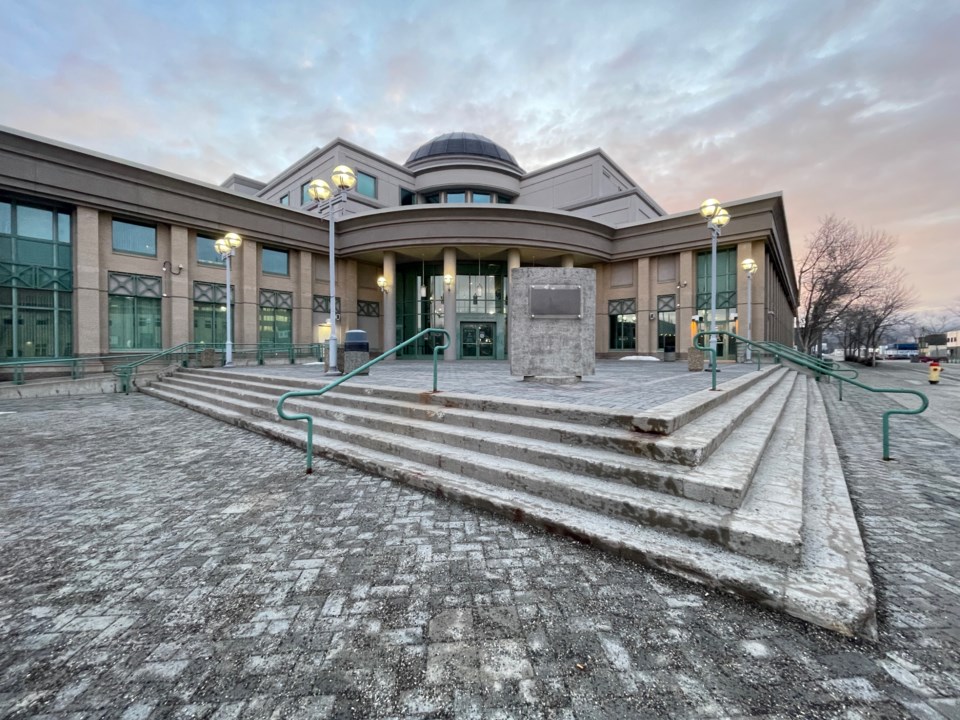The former head of the province’s civilian-led police oversight agency testified April 30 in Provincial Court about the delays in a high-profile 2017 Prince George case.
In 2020, the Independent Investigations Office of BC (IIO) chief civilian director, Ronald MacDonald, found reasonable grounds to believe that two officers committed excessive force on July 18, 2017 against Dale Culver and three others committed obstruction of justice.
Crown prosecutors finally announced charges in 2023.
Last July, Judge Adrian Brooks found Const. Arthur Dalman guilty of directing a witness to delete a smartphone video the night of the violent arrest of 35-year-old Culver, a Gitxsan and Wet’suwet’en man who died in Prince George RCMP custody.
Dalman’s obstruction of justice sentencing is delayed while his lawyers seek a stay of proceedings on the grounds that his constitutional rights to a timely and fair trial were breached.
MacDonald, who retired almost a year ago, said the investigation needed expert reports, took extra steps and constantly battled IIO’s staffing challenges.
“We were overworked, had too many files and not enough people to handle them,” MacDonald testified.
He said when investigators left IIO, few candidates wanted to fill their jobs because the pay scale was lower than other law enforcement agencies and the IIO did not pay overtime.
When Crown counsel finally approved charges against Dalman and other officers, media coverage about IIO staffing troubles led to pressure on the government, which relented and took steps to improve pay.
“That did allow us to get to a point where we were eventually fully staffed,” MacDonald said.
After receiving a pathology report in January 2019, IIO still had questions, so it followed up with the B.C. Coroners Service.
“That clarity was not forthcoming for a long time,” MacDonald said. “I don't believe that clarity was there even when the matter went to Crown in May of 2020. Eventually, the coroner's office appointed up a panel, two other coroners, and together with the original coroner, they did get back to us with further information, which did provide some clarity that was important.”
A report by a use of force expert did not arrive until 2021. It was delayed, in-part, by the search for an expert and the need for governmental sources to approve the fee schedule.
“When I found out that it was taking that much time, I kind of said, get it done,” MacDonald said.
Also at issue during Dalman’s constitutional challenge is the IIO designation of a subject officer versus a witness officer. A subject officer is believed to be a significant contributor to serious harm or death of a person. A witness officer is an officer that an investigator believes can provide evidence about an incident.
MacDonald testified that he never directed that Dalman be designated a subject officer, but instead was designated a witness officer.
MacDonald eventually had reasonable grounds to believe Dalman had committed an offence, but he preferred to “refer that matter to the Crown and leave it to them to determine whether it was appropriate” he be charged or not.
Prior to joining the IIO in 2017, MacDonald had spent 17 years as a Crown prosecutor in Nova Scotia.
In early 2024, B.C. Prosecution Service stayed manslaughter charges against Const. Paul Ste-Marie and Const. Jean Francois Monette and an obstruction of justice charge against Const. Clarence Alexander MacDonald.
The only other officer charged, Sgt. Bayani (Jon) Eusebio Cruz, was tried at the same time as Dalman and found not guilty of obstruction of justice.



